Sweet potatoes are great, but sweetened drinks aren’t so great
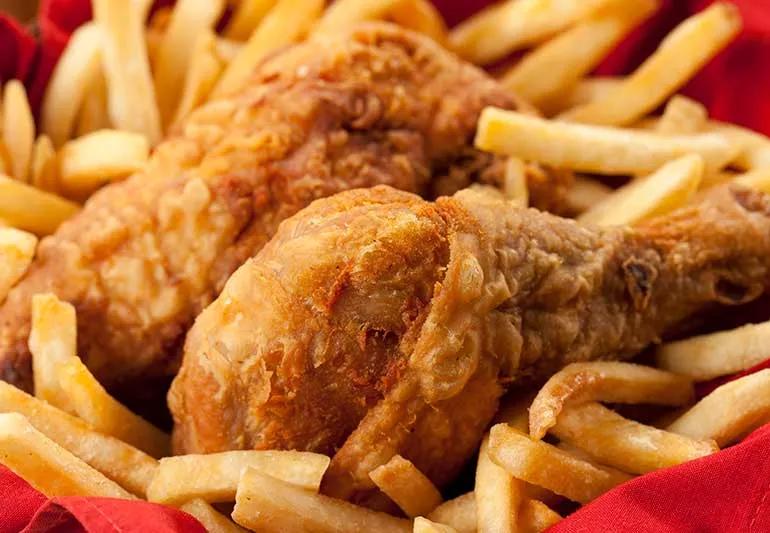
It’s often said a healthy diet is your best medicine — and that’s especially true if you have diabetes, a condition defined by high levels of blood sugar (glucose).
Advertisement
Cleveland Clinic is a non-profit academic medical center. Advertising on our site helps support our mission. We do not endorse non-Cleveland Clinic products or services. Policy
What you eat and drink can impact your glucose, which your body uses for energy. Insulin produced by your pancreas is key to using that glucose for energy by transferring it into your cells.
But if you have diabetes, your body isn’t producing enough insulin or the insulin being produced isn’t working correctly.
Carbohydrates (carbs), protein and fat are the main nutrients in food. Although carbs have the biggest impact on blood sugar levels, as they turn into glucose (sugar) in your body, it’s important to make healthy choices when considering all nutrients.
So, what foods should you avoid? And what’s good to eat? To get answers, we turn to diabetes specialists Sue Cotey, RN, CDCES, and Andrea Harris, RN, CDCES.
Keeping your blood sugar balanced begins with avoiding processed, calorie-dense foods and beverages. Here are 10 items to keep out of your grocery cart and off your menu.
What do most regular sodas, fruit punches and iced teas have in common? They’re typically loaded with added sugar and calories while offering little to no nutritional value, emphasizes Cotey.
If you’re craving a refreshing beverage with a natural zest, try infusing plain water with different berries and fruits. Lemon water is fabulous and offers multiple health benefits. Ditto for lime water.
Advertisement
Do you hit the corner café once a day to grab a decadent dose of caffeine? Those lattes, cappuccinos and other special treats can add lots of extra sugar, calories and saturated fat to your daily diet, cautions Harris.
Instead, go for straight coffee served either black, with a dash of artificial sweetener or a small splash of skim milk.
Whole milk has a whole lot of calories, sugar and saturated fat — all of which can contribute to weight gain causing increased insulin resistance, says Cotey. You’re better off grabbing a low-cal carton of 2%, 1% or (best of all) skim milk.
Unsweetened varieties of almond milk, rice milk or soy milk can be good alternatives to cow’s milk — especially if you have a lactose intolerance in addition to diabetes.
This processed meat is high in saturated fat and sodium — a reality that even applies to “healthier” turkey-based hot dogs, notes Harris. Eat them only occasionally (like at a baseball game or picnic) if at all.
Even a thin slice of ham from your supermarket deli can be loaded with saturated fat and sodium. Check for low-sodium lunch meats or — better yet — slice meat you’ve roasted at home to make your sandwiches, suggests Harris.
Also, remember that sandwich toppings can be unhealthy and problematic. (Example: High-fat mayonnaise). Consider mustard, veggies or a spread of hummus to add extra flavor to your sandwich.
Fun-shaped marshmallows on sugar-coated flakes turn breakfast cereal into little more than a carb-loaded sweat treat — and that is NOT the healthiest way to start your day.
There are healthy whole-grain options in the cereal aisle that are lower in sugar and higher in fiber, says Cotey. Spend some time checking nutrition labels for cereals with at least 3 grams of fiber and less than 6 grams of sugar per serving.
Pancake syrup is loaded with sugar and contributes to your daily consumption of carbs. Adding to the concern is that most people also pour far heavier than a “single serving” when covering their flapjacks.
Light or low-calorie syrups usually contain half the carbs of regular varieties, says Harris. That’s still a significant amount of carbs, though, so use any syrup sparingly.
Many people look at sherbet and see a good alternative to ice cream. The reality? Sherbet typically has almost double the carbohydrates of ice cream, states Cotey.
If you’re looking for a frozen treat from time to time, search out a product lower in sugar, carbs and saturated fats. Also be mindful of serving size. Most people scoop out far more than what’s recommended.
A plain baked potato is a relatively healthy food choice. Piling on cheddar cheese, butter, sour cream, ranch dressing and bacon can quickly turn that root vegetable into a high-sodium, fat-laden disaster, says Harris.
Advertisement
The solution? Keep things simple with toppings (lettuce and tomatoes, for instance) and go light on dressings.
Deep-fried food such as French fries and fried chicken are not healthy choices. The food absorbs fat during the frying process, which isn’t good for your cholesterol, heart health or weight while trying to manage diabetes.
Try baking or broiling your food instead, recommends Cotey. Air fryers that use hot air instead of oil also are a healthier option.
The five foods below all have a low glycemic index, meaning they don’t increase blood sugar levels quickly. An added bonus? They’re all high in fiber while offering a host of vitamins and nutrients to help you stay healthy.
Advertisement
Learn more about our editorial process.
Advertisement

Hot, humid weather can affect your blood sugar levels and even cause dehydration or heat stroke

The good news? Prediabetes can be erased with healthy lifestyle changes, including eating more nutritious foods

Fresh or frozen fruits that are low on the glycemic index should be your go-to, as they’re full of fiber and other nutrients

Adding nuts like pistachios, almonds or pecans to your diet can help manage blood sugar levels
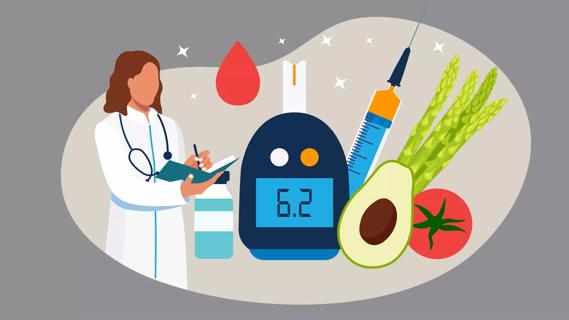
A diabetes diagnosis, new or long-standing, can trigger reactions like grief, stress, depression and frustration, but symptom relief and help are available
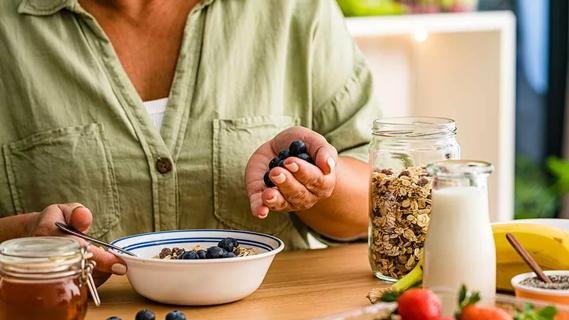
The short answer: Yes, but you need to eat it in moderation and keep track of how much you consume
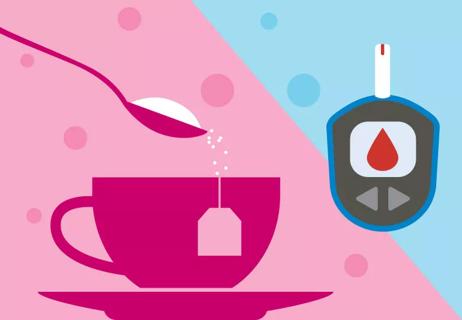
Some sweeteners may have health risks, so it’s best to keep your intake moderate
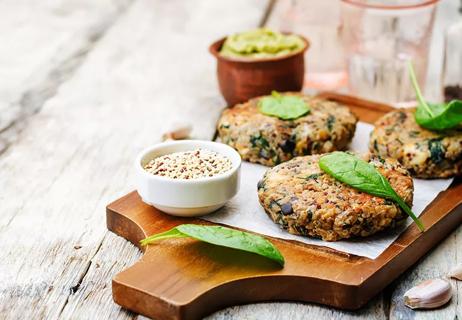
Lifestyle changes like diet and exercise can help

Wearing a scarf, adjusting your outdoor activities and following your asthma treatment plan can help limit breathing problems

Your diet in the weeks, days and hours ahead of your race can power you to the finish line

When someone guilt trips you, they’re using emotionally manipulative behavior to try to get you to act a certain way